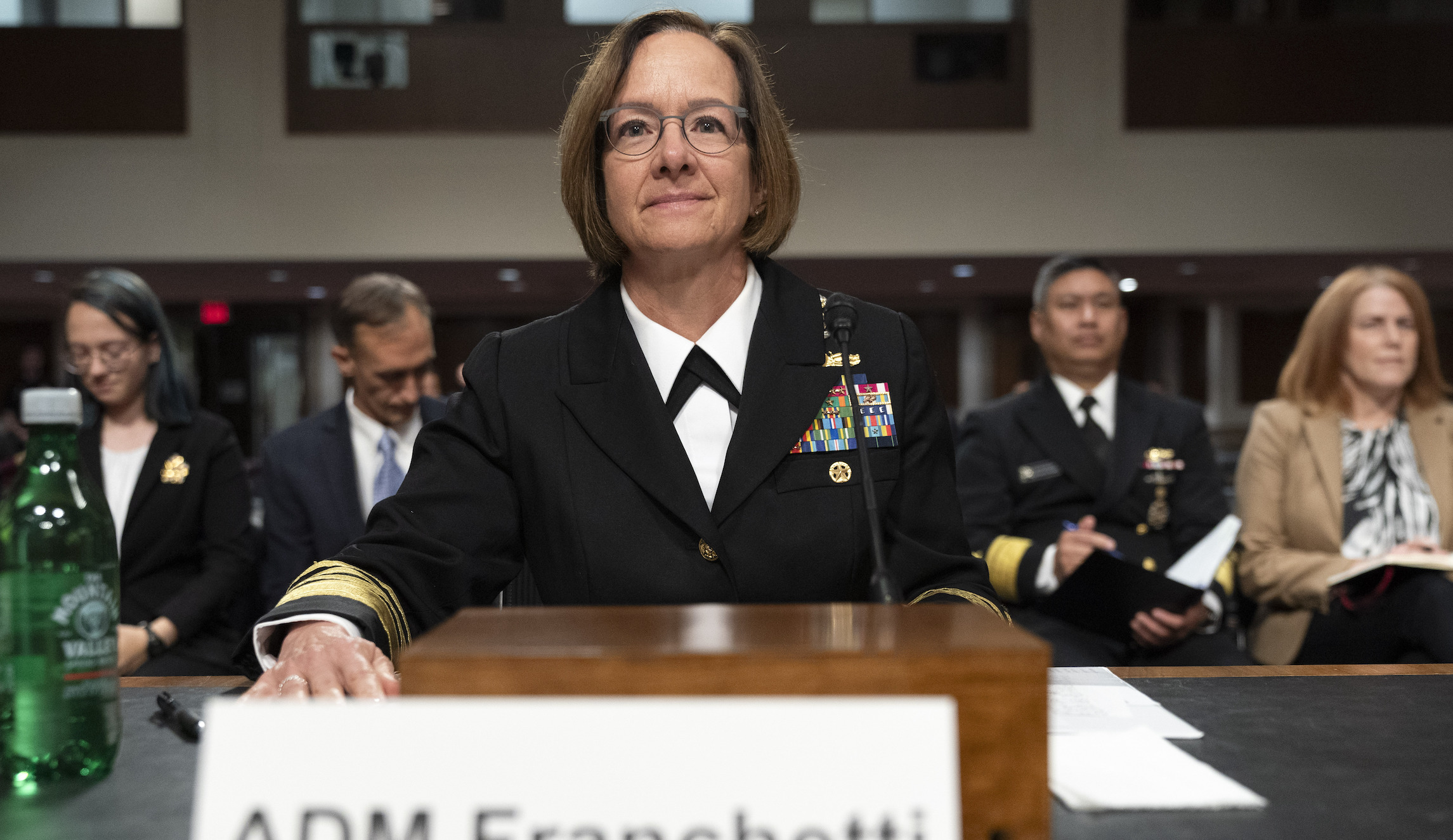The effects of Sen. Tommy Tuberville’s (R-AL) hold on military promotions and confirmations will be felt for years, President Joe Biden’s selection to lead the Navy acknowledged on Thursday.
Adm. Lisa Franchetti, the vice chief of naval operations, as well as the acting chief of naval operations due mostly to Tuberville’s hold, testified in front of the Alabama lawmaker and the rest of the Senate Armed Services Committee on Thursday. Tuberville has held up more than 315 military nominations for over six months due to his opposition to the Department of Defense’s policy implemented in response to the Supreme Court’s reversal of Roe v. Wade.
TRUMP SAYS BIDEN IS NOT ‘TOO OLD’ FOR 2024 REELECTION BUT IS ‘GROSSLY INCOMPETENT’

“I think just at the three-star level, it would take about three to four months to move all the people around, but it will take years to recover from the, if confirmed, promotion delays that we would see for years to come,” she told lawmakers under questioning from Sen. Elizabeth Warren (D-MA), who has been outspoken about the ramifications of Tuberville’s hold.
“Our military experts project China wants to be able to take Taiwan by 2027, and we’ll still be trying to repair the damage inflicted by these holds,” Warren responded. “The Republicans’ failure to end this blockade makes it clear they don’t care about us. They don’t care about families who have served their country honorably for decades. It’s hard to imagine a bigger propaganda win for our enemies. We need this hold to stop, and we need it to stop now.”
The Department of Defense endorsed her projection later on Thursday.
“Her comments are absolutely right,” deputy spokeswoman Sabrina Singh told reporters. “What you’re going to see is, as these promotions continue to get delayed, that pushes back other promotions, which is going to cause other of our officers or senior-level officers to consider whether they should retire, and you’re going to really see potentially a hollowing out of our military. So, this absolutely has hugely consequential impacts for years to come.”
However, Gen. Charles Flynn, commander of the Hawaii-based U.S. Army-Pacific, said a day earlier that he hadn’t noticed any “practical challenged,” though he acknowledged, “It gets a little difficult in terms of being able to identify when you’re going to change and who you’re going to change with and the timing of that.”
If Franchetti gets confirmed, and Tuberville spoke positively of her during his questioning, she would become the first woman to serve on the Joint Chiefs of Staff.
“I coached football for a long time. I coached teams, put them together. And I had football players. I didn’t have different races, or wealth, or religions. And I would never, I would never try to divide that group and put them in certain categories … so what are we doing? Why are we separating this — because our military is a team. I mean, we’ve got to win. There’s no second place in war,” Tuberville said. “I know you can do the job. I’m looking forward to it. But I would just, you know, the experiences I’ve had over the years. If we ever start trying to divide into groups within a team atmosphere, which our military is a team, we’re gonna have huge problems down the way.”
Tuberville has argued for months that the policy the department instituted in response to the Supreme Court’s reversal of Roe v. Wade is illegal. The policy is to reimburse service members or dependents who have to travel out of state to get an abortion or other noncovered reproductive healthcare due to local laws. As such, he has held up the Senate’s ability to vote on nominees the way it normally does, in batches by unanimous consent.
Military leaders have expressed urgency in ending the standoff since the start of the month, though they have done so without expressing a willingness to compromise on the policy.
CLICK HERE TO READ MORE FROM THE WASHINGTON EXAMINER
Franchetti; Gen. Randy George, vice chief of staff of the Army; and Gen. Eric Smith, assistant Marine Corps commandant, are working in their current roles while taking on the acting position above them. Biden selected all three of them to lead their respective service branches, and it’s the first time three branches are simultaneously without a Senate-confirmed chief. Gen. Mark Milley, chairman of the Joint Chiefs of Staff, is slated to retire later this month, though it’s unclear if the Senate will confirm Biden’s chosen successor, Gen. Charles Q. Brown, before then. Brown’s nomination, should he be confirmed, would also create a vacancy on the Joint Chiefs of Staff for the head of the Air Force. Biden has already nominated Gen. David W. Allvin, the vice chief of staff of the Air Force, to lead the service.
Senate Majority Leader Chuck Schumer (D-NY) could bring them to the floor one by one instead of passing them in batches by unanimous consent, but it would take significantly more time. He has refused to pursue this option and described this as a Republican problem to solve, whereas Tuberville said earlier this week that if the Senate doesn’t vote on Brown’s nomination this month, it’s “entirely” the fault of the Democrats.

